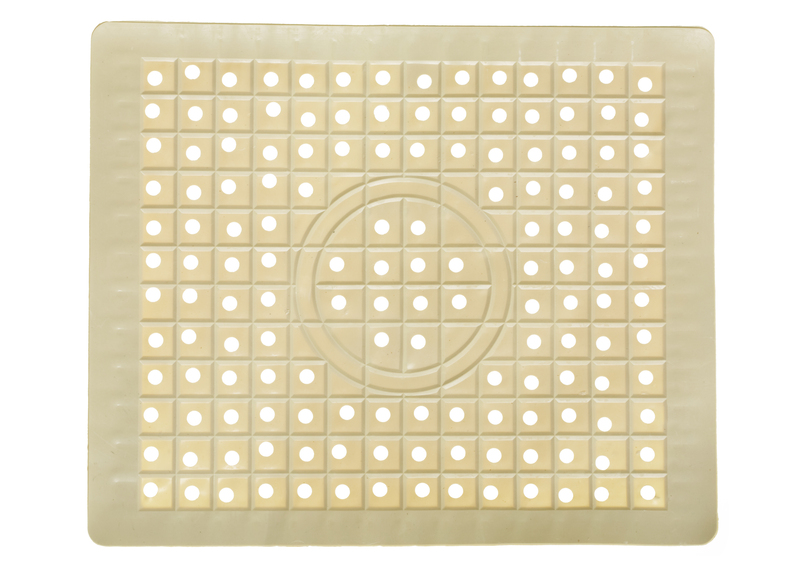Essential Oven Cleaning Tips
Posted on 04/10/2024
Your oven is an indispensable kitchen appliance, but regular use can lead to the buildup of grime and gunk. Keeping it clean not only ensures better performance and energy efficiency but also extends its lifespan. Here are some essential oven cleaning tips to help you maintain a spotless and hygienic cooking environment.
1. Gather Your Supplies
Before you start cleaning your oven, make sure you have all the necessary supplies. Here's what you'll need:
- Rubber gloves
- Baking soda
- White vinegar
- Water
- A spray bottle
- A scrubbing pad or sponge
- A microfiber cloth or paper towels

2. Empty the Oven
Remove all oven racks, trays, and any other removable parts. This will give you better access to the interior surfaces and make the cleaning process more efficient.
3. Clean the Oven Racks
Oven racks can accumulate a lot of baked-on grease and food particles. Soak them in a sink or bathtub filled with hot water and a few drops of dish soap. Let them sit for at least an hour. Then, scrub them with a sponge or scrubbing pad and rinse thoroughly.
4. Make a Baking Soda Paste
Baking soda is an excellent natural cleaner. Mix it with water to create a paste. The ideal ratio is about half a cup of baking soda to three tablespoons of water. Adjust the quantity depending on the size of your oven.
5. Apply the Paste
Put on your rubber gloves and spread the baking soda paste over the interior surfaces of the oven, focusing on areas with heavy buildup. Avoid the heating elements. Let the paste sit for at least 12 hours or overnight to allow it to break down the grime.
6. Scrub and Wipe
After the baking soda paste has had time to work its magic, use a damp cloth or sponge to wipe away the paste and loosened grime. For stubborn spots, use a plastic scraper. Make sure to get into all the nooks and crannies.
7. Use Vinegar for Extra Cleaning Power
Fill a spray bottle with equal parts water and white vinegar. Spray the mixture onto the inside of the oven, letting it react with any remaining baking soda residue. This will create a foaming action that helps lift away more dirt. Wipe the surfaces clean with a damp cloth.
8. Clean the Oven Door
Don't forget to clean the oven door, both inside and out. A mixture of baking soda and water can be applied to the inside glass, left to sit for 20 minutes, and then wiped clean. For the outside, a glass cleaner can be used to remove fingerprints and smudges.
Pros and Cons of Different Cleaning Methods
There are various methods for cleaning your oven, each with its own advantages and disadvantages.
Store-Bought Oven Cleaners
Pros:
- Highly effective at cutting through grease
- Fast-acting
Cons:
- Contains harsh chemicals
- Requires good ventilation
Self-Cleaning Ovens
Pros:
- Easy to use
- Requires minimal effort
Cons:
- High energy consumption
- Can produce smoke
Natural Cleaning Methods
Pros:
- Safe for households with pets and children
Cons:
- Time-consuming
- Requires more elbow grease
Additional Tips for Oven Cleaning
- Regularly wipe down oven spills to prevent buildup.
- Use oven liners to catch drips and spills, making cleanup easier.
- Use a vacuum with a hose attachment to remove loose debris before cleaning.

Takeaways
Consistently maintaining a clean oven not only improves cooking results but also extends the life of the appliance. By using safe, natural cleaning methods, you can keep your oven spotless without exposing your family to harsh chemicals. Regular maintenance will make deep cleanings quicker and easier.
Conclusion
Keeping your oven clean is essential for ensuring optimal performance, energy efficiency, and longevity. While it may seem like a daunting task, following these essential oven cleaning tips can make the process much more manageable. Whether you opt for natural methods or commercial products, the key is to clean regularly to prevent buildup and enjoy a hygienic cooking space.
Latest Posts
Fast and Easy Sofa Cushion Cleaning Solutions




